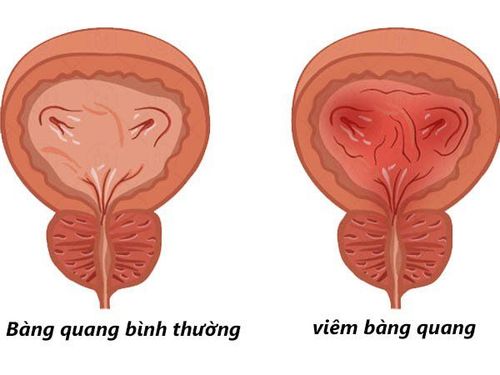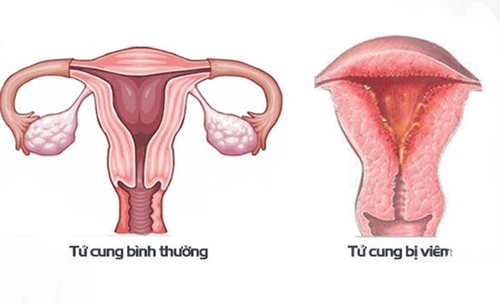Chronic urethritis is an advanced stage of urethritis that may arise from a failure to detect and treat it promptly. Consequently, managing chronic urethritis is often more challenging and requires greater perseverance compared to early-stage urethritis.
1. Chronic Urethritis Overview
The urethra is a crucial part of the reproductive system, responsible for carrying urine from the bladder to the outside and transporting secretions from the seminal vesicles during sexual intercourse. When the urethra is affected by diseases, it may impair urine excretion and ejaculation function, potentially leading to serious complications, including fertility issues and problems with nearby organs.
Urethritis is an infection of the urethra caused by various bacteria, such as Chlamydia, E. coli, and Neisseria Gonorrhoeae... These bacteria may enter the urethra due to several common factors, including:
- Poor genital hygiene: infrequent cleaning, wearing tight clothing that retains moisture, using unclean water, or applying irritating chemicals to the genital area.

- Excessive masturbation may lead to chronic urethritis.
- An unhealthy sexual lifestyle: engaging in unprotected sex, not using condoms, or having multiple sexual partners…
- Complications arising from improper medical procedures, such as urethral dilation or catheter placement…
- Abnormalities of the male foreskin, such as phimosis or a long foreskin, which make cleaning difficult.
Although urethritis is neither an emergency nor life-threatening, delayed diagnosis or treatment may allow it to progress to chronic urethritis, a more serious condition with potentially dangerous complications. Chronic urethritis may affect both men and women of any age, but women are generally more susceptible. Common symptoms of chronic urethritis include:
- Vaginal discharge with a foul odor.
- Burning sensations during urination and a feeling of heat.
- Frequent urination and urgency.
- Swelling and redness of the urethra, accompanied by abnormal mucus discharge.
- Pain during sexual intercourse.
- Fever and chills.
- Pain in the back or pelvis.
- For men, additional symptoms may include the discharge of white, cloudy, or green pus from the foreskin, along with a foul odor.
Treatment for chronic urethritis may be lengthy and difficult, leading to potential complications, such as:
- Disruption of the urinary system, including local scarring, which may cause urethral strictures, resulting in hesitancy or dysuria.
- Chronic urethritis may lead to retrograde infections, which may result in chronic kidney failure.
- Other urinary tract diseases, such as cystitis, prostatitis, inflammation of the vas deferens, and seminal vesiculitis.

2. Treatment of Chronic Urethritis
Chronic urethritis may still be treated, but it is quite challenging and requires perseverance from both physicians and patients throughout the treatment process. This difficulty arises because the bacteria causing the disease often develop resistance to medications. Therefore, successful treatment of chronic urethritis necessitates a specific regimen along with the prescription of certain targeted medications.
The first step in treating chronic urethritis is accurately identifying the cause of the disease. This involves a combination of patient history, physical examination, and necessary paraclinical tests to pinpoint the bacteria responsible for the infection. This thorough approach helps avoid temporary or incomplete treatments.
If the infection is caused by common bacteria such as E. coli, the physician may prescribe antibiotics. However, if the infection is due to sexually transmitted pathogens such as gonorrhea or Chlamydia, a more complex treatment regimen is required, often combined with other methods.

Here are some specific methods for treating chronic urethritis:
- Antibiotics: Physicians may prescribe oral or injectable antibiotics tailored to the patient's needs to eliminate disease-causing bacteria and prevent their growth and spread to surrounding organs.
- Traditional Medicine: In cases where patients cannot use antibiotics, traditional medicine may be an option. This approach is typically gentler and less likely to cause side effects, making it suitable for patients who are allergic to antibiotics. Combining Western medicine with traditional treatments may also enhance effectiveness, though results may take longer to manifest when using antibiotics.
- Surgical Treatment: In severe cases of chronic urethritis, surgery may be necessary. This could involve draining pus from the urethra or removing necrotic tissue.
During the treatment of chronic urethritis, patients should adhere to the following precautions:
- Limit sexual intercourse during treatment and use preventive measures if sexual activity occurs.
- Maintain regular hygiene, especially for the genital area.
- Do not discontinue treatment without consulting the physicians; strictly follow the prescribed regimen.
- Inform individuals who may be at risk of infection to help protect public health.
Chronic urethritis is a serious urinary tract infection that requires prompt attention to prevent dangerous complications. While there are various methods to treat chronic urethritis, achieving a complete cure may be difficult and requires consistent adherence to treatment guidelines.

To arrange an appointment, please call HOTLINE or make your reservation directly HERE. You may also download the MyVinmec app to schedule appointments faster and manage your reservations more conveniently.








